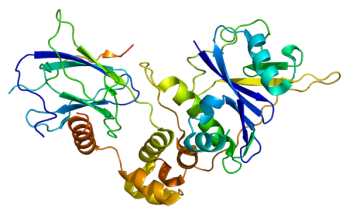
Kidney Cancer
Latest News

Latest Videos

More News

Primo Nery Lara, Jr., MD, talks treatment of metastatic renal cell carcinoma in the first-line setting at the 15th Annual Interdisciplinary Prostate Cancer Congress® and Other Genitourinary Malignancies, hosted by Physicians’ Education Resource®, LLC.

At 2022 ASCO GU, Daniel M. Geynisman, MD, spoke with CancerNetwork® about his strategy for treating renal cell carcinoma across lines of therapy.

For Kidney Cancer Awareness Month, CancerNetwork® spoke with Chung-Han Lee, MD, PhD, about research in renal cell carcinoma that has the greatest potential to impact the standard of care.

Chung-Han Lee, MD, PhD, spoke about necessary research needed moving forward for patients with metastatic renal cell carcinoma.

At 2022 ASCO GU, Toni K. Choueiri, MD, discussed the CLEAR study and how East Asian patients with renal cell carcinoma derived similar benefit with lenvatinib plus pembrolizumab as the overall trial population.

Chung-Han Lee, MD, PhD, spoke about interesting findings that arose from the KEYNOTE-146 study for patients with metastatic renal cell carcinoma.

Patients with metastatic renal cell carcinoma and a performance status of 2 or more experienced promising clinical activity from treatment with nivolumab/ipilimumab and pembrolizumab/axitinib.

The final analysis of the phase 3 IMmotion151 trial did not reveal a significant improvement in overall survival with atezolizumab plus bevacizumab over sunitinib for previously untreated patients with metastatic renal cell carcinoma.

Data from a phase 2 trial of atezolizumab with or without radiotherapy showed some antitumor activity in advanced squamous cell carcinoma of the penis, despite failing to meet the primary end point of progression-free survival.

Disease-Free Survival Benefits Persist With Adjuvant Pembrolizumab in RCC
Updated data from the KEYNOTE-564 trial that were reported at 2022 ASCO GU show continuous disease-free survival advantage with pembrolizumab vs placebo as adjuvant therapy for renal cell carcinoma.

Data from the NeoAvAx trial presented at 2022 ASCO GU show potential for neoadjuvant avelumab plus axitinib for high-risk, non-metastatic clear-cell renal cell carcinoma.

Retrospective trial results inform utility of tivozanib in the real-world treatment of renal cell carcinoma.

Better health-related quality of life outcomes were associated with nivolumab and cabozantinib for advanced renal cell carcinoma vs sunitinib.

A surrogate for toxicity and drug exposure, cabozantinib dose reductions were tied to longer durations of time to treatment failure and overall survival for patients with metastatic renal cell carcinoma.

Treatment with cabozantinib in the second line yielded responses in patients with advanced renal cell carcinoma who received immunotherapy in the frontline, regardless of prior regimen.

East Asian Patients With Advanced RCC Benefit from Lenvatinib Plus Pembrolizumab
Subgroups analysis from the CLEAR trial of lenvatinib plus pembrolizumab showed efficacy results were consistent between East Asian patients and the overall study population.

Data presented at 2022 ASCO GU of front nivolumab plus cabozantinib for renal cell carcinoma show persistent overall survival benefit versus sunitinib.

New findings indicate that treatment with cabozantinib following failure of immunotherapy proved to be safe and feasible in metastatic renal cell carcinoma.

Rates of progression-free survival at 3- and 4-year landmarks significantly improved with tivozanib vs sorafenib for relapsed or refractory RCC.

Data from the TITAN-RCC trial presented at 2022 ASCO GU showed that certain immune cell–related parameters may be predictive of response to nivolumab/ipilimumab in advanced or metastatic clear cell renal cell carcinoma

Chung-Han Lee, MD, PhD, spoke about using biomarkers to help predict responses in patients with metastatic renal cell carcinoma treated on the KEYNOTE-146 study.

Research suggests patients with advanced renal cell carcinoma who received neoadjuvant cabozantinib saw reductions in tumor size with no disease progression.

Patients with previously treated metastatic urothelial carcinoma or renal cell carcinoma experienced promising benefit from treatment with niraparib and cabozantinib.

Expert Commentary on the product profile of Belzutifan for Renal Cell Carcinoma
In an interview with ONCOLOGY®, Natasha Khrystolubova, BPharm, RPh, BCOP, offers a comprehensive review of real-world treatment considerations of belzutifan as therapy for patients with renal cell carcinoma.

The new drug application for dovitinib as a third-line treatment for patients with renal cell carcinoma is supported by a pre-marketing approval for companion diagnostic, Dovitinib-DRP.















































